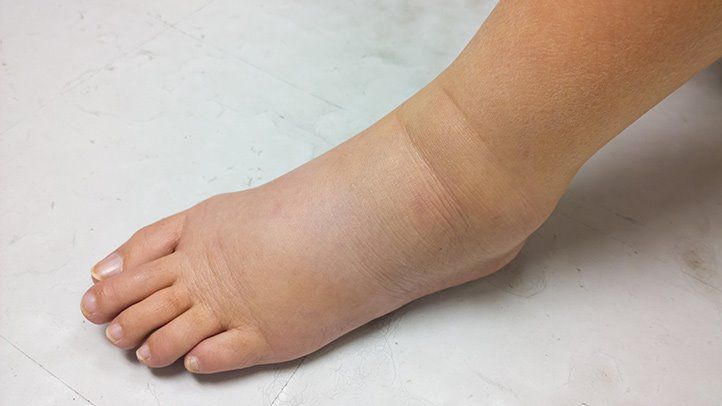Reduce Edema Swelling: Fluid accumulation in the body tissues and the area around the organs of the body is recognized as edema. Understanding the reason that leads to the condition is often the best method for edema treatment. Edema is commonly observe in the lower body or the hands, chest region or the abdomen. Heart failure may cause fluids to collect in the chest region, a condition known as pulmonary edema. This can sometimes fatal in case it is not treat in time.
The skin may become stretched, appear shiny or puffy depending on the cause of the edema. These are the most common symptoms that are apparent. In patients who are laid up in bed for a long period, the symptoms may visible on the lower back or the legs. In many cases, the swelling worsens at the end of the day; in some instances, it may become worse after standing or sitting for a long. Shortness of breath is a common symptom of chest edema while the abdominal size increases in abdominal edema. Failure of the heart or the lymphatic system leads to edema. Cirrhosis can be another cause of edema. An injury or the malfunctioning of the lymphatic system is the cause for lymph edema.
There can numerous caused for edema; however, the most frequent reason for edema is venous disease. A blood clot or deep vein thrombosis is another common cause of edema. During pregnancy, women retain fluid which causes swelling. There is no need for edema treatment, as the swelling goes away by itself. In women, the monthly menstrual cycle sometimes causes edema, but this does not need treatment. Side effects of medications for hypertension or diabetes may at times cause edema in patients. Congestive heart failure is the most serious condition that causes edema in the chest; it may also cause death. Swellings on the lower legs or around the eyes may be the result of kidney disease.
The ideal method to treat edema is to find out the factors causing it and taking care of that cause first. Often, doctors recommend the reduction of salt intake as the first line of treatment. Another easy option is to elevate the legs for about half an hour everyday to take care of the swelling. Diuretics are prescribe for the serious pulmonary edema. This helps in draining the excess water and sodium through the kidneys. Due care must taken while using diuretics as a large dosage might cause too much fluid to drain fast, lowering the blood pressure, thus causing damage to the kidneys.

